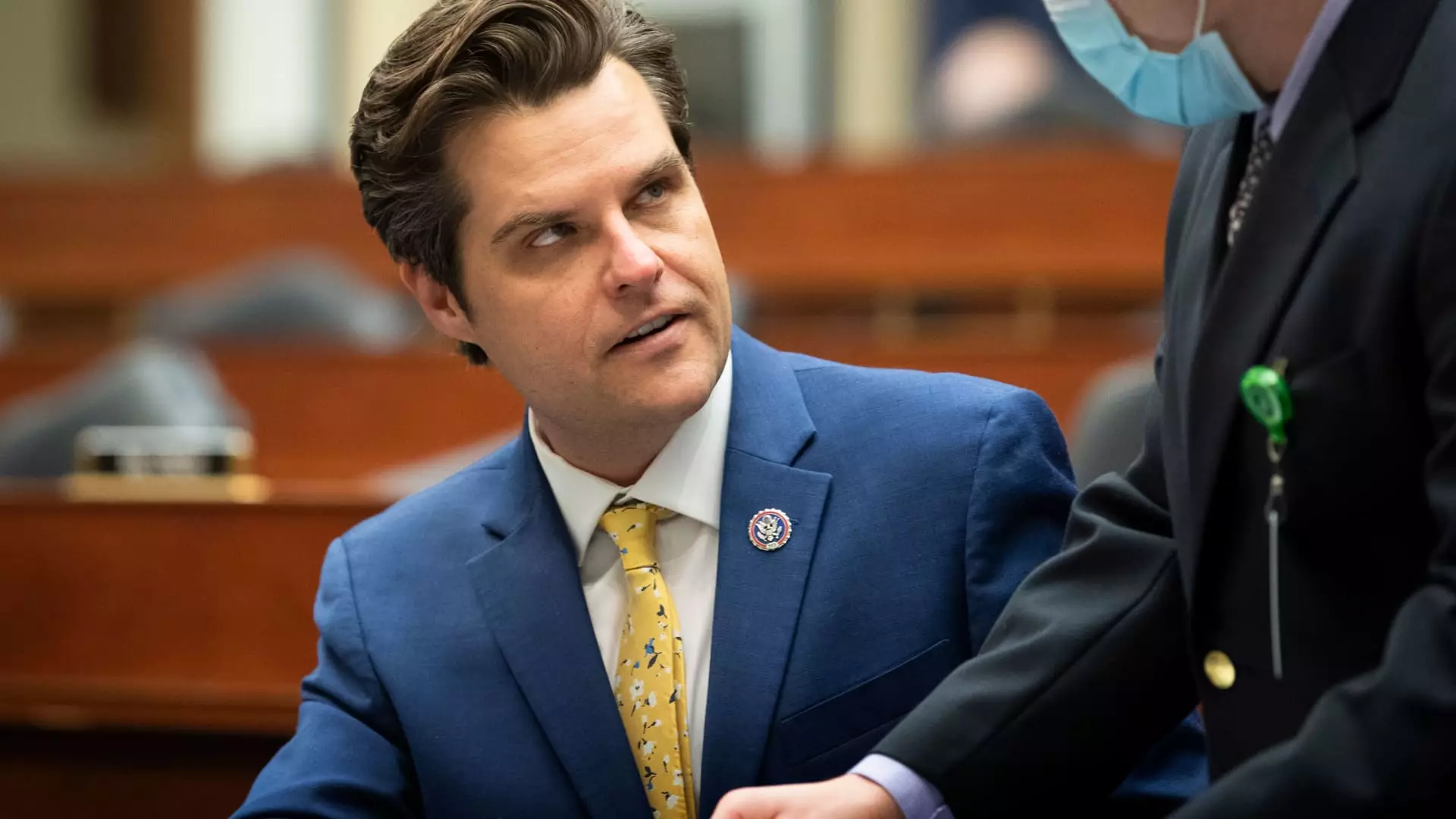In a politically charged environment marked by heightened scrutiny, the House Ethics Committee has taken significant steps to address allegations against former Republican Representative Matt Gaetz. According to NBC News, the committee has voted to release a report detailing its investigation into multiple allegations, including sexual misconduct and illicit drug use involving Gaetz. The timing of this report is critical, potentially coinciding with the end of the current congressional session. The release of such findings not only underscores the seriousness of the allegations but also highlights the broader implications regarding accountability and ethics in political offices.
Gaetz has consistently denied all allegations against him, particularly those related to the claim of engaging in sexual activities with an underage girl. His defensive rhetoric suggests a readiness to contest each claim vigorously, promoting his narrative of innocence through social media platforms. This public rebuttal, however, raises questions about the intersection of personal defense and public trust in political figures.
As the investigation unfolded, Gaetz’s political fortunes took a significant downturn, culminating in his resignation from Congress. This move came shortly after being nominated by then-President-elect Donald Trump for the position of U.S. Attorney General, a nomination that was swiftly withdrawn amid swirling controversies. Critics argue that this pattern reflects a troubling trend where political leaders may not face consequences for serious allegations, potentially undermining public confidence in governance.
Gaetz’s reaction to the Ethics Committee’s decision reflects his ongoing struggle with the political ramifications of the allegations. By framing his past behavior—characterized by the “partying,” “womanizing,” and substance use—as mere youthful indiscretions, he seeks to minimize the gravity of the accusations leveled against him. Nonetheless, his insistence on having had no inappropriate contact with underage individuals remains a pivotal point of contention, emphasizing the struggle to maintain a positive public image in light of damaging allegations.
The endeavor of the Ethics Committee in assessing Gaetz’s conduct is not without precedent. Historically, the committee has operated with bipartisan oversight, leading to investigations and subsequent reports regarding ethical breaches by members, even after they have resigned from their positions. In previous cases, such as the report on former Representative Bill Boner in 1987, the committee has demonstrated a commitment to transparency and accountability, principles that are integral to maintaining the integrity of the legislative body.
However, the counsel of House Speaker Mike Johnson, who has urged caution regarding the release of the report in light of Gaetz’s departure from office, highlights the contentious nature of such actions. Johnson’s concerns about setting a “terrible precedent” resonate within the broader debate over the responsibilities of Congress concerning its former members.
As the Ethics Committee prepares to finalize and publish its findings, the implications extend beyond Gaetz himself. They serve as a crucial reminder that accountability should remain a cornerstone of political service. The challenge lies in approaching such sensitive investigations with the seriousness they warrant while also respecting the rights of the individuals involved.
The actions of Gaetz and the committee juxtapose the personal liberties of former officials against the overarching need for public accountability. In an era characterized by increasing political polarization and public distrust in government, the release of such reports could play a pivotal role in restoring integrity within congressional operations.
Ultimately, the case of Matt Gaetz encapsulates broader themes of ethics, conduct, and accountability in politics. The forthcoming report may not only provide clarity to ongoing allegations against Gaetz but also signal the House Ethics Committee’s commitment to uphold ethical standards, which is essential in fostering a transparent and trustworthy governance system. The unfolding situation is a reminder that political figures must remain vigilant in their personal conduct, as past actions can have lasting repercussions on both their careers and public confidence in elected officials.


Leave a Reply